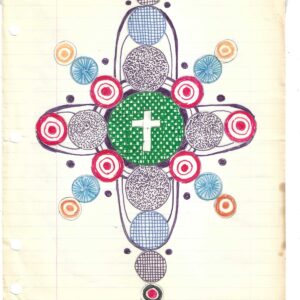“Of the Terrible Doubt of Appearances”— this title, of one of Walt Whitman’s poems, jumped out at me when I opened Garrison Keillor’s The Writer’s Almanac recently. Somehow, for all of my admiration of Whitman, I had never noticed this poem before. Here it is. I wonder if you’ll react to it as I did.
Of the terrible doubt of appearances,
Of the uncertainty after all, that we may be deluded,
That may-be reliance and hope are but speculations after all,
That may-be identity beyond the grave is a beautiful fable only,
May-be the things I perceive, the animals, plants, men, hills, shining and flowing waters,
The skies of day and night, colors, densities, forms, may-be these are (as doubtless they are) only apparitions, and the real something has yet to be known,
(How often they dart out of themselves as if to confound me and mock me!
How often I think neither I know, nor any man knows, aught of them,)
May-be seeming to me what they are (as doubtless they indeed but seem) as from my present point of view, and might prove (as of course they would) nought of what they appear, or nought anyhow, from entirely changed points of view;
To me these and the like of these are curiously answer’d by my lovers, my dear friends,
When he whom I love travels with me or sits a long while holding me by the hand,
When the subtle air, the impalpable, the sense that words and reason hold not, surround us and pervade us,
Then I am charged with untold and untellable wisdom, I am silent, I require nothing further,
I cannot answer the question of appearances or that of identity beyond the grave,
But I walk or sit indifferent, I am satisfied,
He ahold of my hand has completely satisfied me.
I think that I noticed the poem, was struck by its title, felt that it “jumped out at me” — that these responses were prompted by the poem’s ambiguities. Did the title refer to the poet’s own doubt of appearances? Maybe not, since wouldn’t he in that case have referred to my instead of the doubt? Or was he referring to the very nature of appearances, as themselves the creatures of doubt, or even the victims of it? And why “Of the Terrible Doubt…”? “Of” suggests a distanced, theoretical approach to this doubt, whatever and whosoever it was. But if so, how could such a doubt be “terrible”? “Terrible” to whom?
The first line of the poem doesn’t clarify matters, since it merely echoes the title. Or perhaps that’s the poet’s point, to emphasize the power of the title’s ambiguities? And even if his editors, and not Whitman, supplied the title, the effect is the same.
All the more startling, then, to discover in the second line that the “the terrible doubt”— now restated and expanded as “the uncertainty after all, that we may be deluded” — belongs not only to the poet but also to us.
But by what right does the poet make such a claim of our mutual ownership of the doubt? Does he assume that right in the phrase “after all,” which sounds slightly conspiratorial, as if the doubt is an unwelcome surprise that we both now share? And “after all” of what? “After all” our conscientious efforts to prove otherwise? That we weren’t deluded? Deluded about what?
So when in the next two lines the poet fills in what seem the blanks about what those delusions actually were— about “reliance,” and “hope,” and “identity beyond the grave”—, these are stated as truths “we” had once thought settled, agreed upon as secure, though now modified by the invented adjective “may-be,” which acts ambiguously like an adverb— so that as adjective “may-be” seems solid, as identifying the quality of a thing, but as adverb casts doubt on the statement itself.
Maybe (or “may-be”?) having won our complicity, the poet feels able to spread the “terrible doubt of appearances” not merely over ideas but over objects, over “the things I perceive.”
And here it is that another figure enters this drama of doubt, the figure within the parentheses, the voice that by echoing the doubt both intensifies and undermines it. Take as an example of this amplification of ambiguity the effect of “(as doubtless they are”). If
The skies of day and night, colors, densities, forms, may-be these are (as doubtless they are) only apparitions,…
…then how “doubtless” can the apparitions be if their doubtlessness has to be asserted? And when this assertion is qualified by one of those wobbly “may-be’s”? What meaning can “doubt” have, or any word, for that matter, if any use of it has constantly to be verified? And verified by whom? And how?
These provoking ambiguities continue to swarm and then congeal into a tangled, clotted, roiling mass in the poem’s longest, densest line, line nine, the line beginning
May-be seeming to me what they are (as doubtless they indeed but seem)…
…a line, interestingly, that Whitman at one point deleted and then restored.
My Norton Critical Edition of the complete Leaves of Grass calls this line “syntactically involved.” That’s a kind way to put it. Whitman’s inspiration wrote it, his good literary manners expunged it, his courage restored it. And not only his courage: his fellow-feeling too. The line’s very clogged infelicity brings the drama of an irresolvable impasse between statements about appearance and reality to the breaking point for both writer and reader. We both, writer and reader, are made to share in line nine’s almost comic scramble of earnest qualifications of what can and cannot be claimed to be unequivocally real.
Including the reader in such fellowship might seem a dubious partnership. But the poem’s direction changes after the semicolon at the end of line nine. The remainder of the poem resolves the “terrible doubt” on a completely different level, in the calm flow of clauses from line ten through the end and in the hand of the poet’s lover or friend.
But who is that friend? Doesn’t the poet characterize the friend as the one “who travels with me”? And who has traveled harder and longer with the poet than we, the reader? “The terrible doubt” was always as much ours as his. The poet has taken us through the experience of facing this doubt in all its despairing syntactical messiness and in being forced to ask ourselves, Whose hand will we now hold? And now we have our answer: the hand is his.
After getting his PhD in English literature, George Dardess taught close reading to his own students until his retirement. Since then he has been ordained a Deacon in the Roman Catholic Church and written several books on Muslim-Christian relations. He has also created the graphic novel Foreign Exchange.





